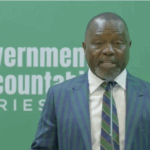
Korle Klottey MP, Dr Zanetor Agyeman-Rawlings, has taken aim at Ghana’s governance culture, accusing policymakers of sidelining young people and offering tokenistic solutions instead of genuine engagement.
Speaking on JoyNews’ podcast Talk No Dey Cook Rice, she warned that the country risks alienating its youth if leaders continue to design policies without listening to their real concerns.
“A lot of young people feel like they don’t matter,” she said.
“They are not heard in designing policies. Nobody’s asking them, what are you actually interested in? You have people designing a thing and saying, This is what we’re giving to the youth. But maybe that’s not what they want.”
According to her, this disconnect explains why uptake of many youth-targeted programmes is weak.
“Sometimes the onboarding for certain programs for young people is not as high as it should be, because it’s not catering to what they actually feel they need,” she added.
Dr Agyeman-Rawlings lamented a wider culture where citizens and leaders alike shirk responsibility, eroding trust and accountability.
“We’ve steadily moved away from this sense of being a part of the thing to being outsiders of governance,” she said.
“When leadership is not willing to bring the people along and expect more of them, you create a feeling of, well, what difference does it make anyway?”
She said this culture feeds into a dangerous cycle of populism.
“It seems as though we’re constantly chasing elections. The populism thing is just becoming so central that we are not paying enough attention to what is the right thing to do, not just for today, but for tomorrow.”
For her, good governance is about more than elections.
“You’re making sure that the dignity of the citizen is respected. You’re making sure working conditions are good enough.
“You’re looking at the roads and making sure the number of people who are dying in road traffic accidents is no more than the number dying of disease in hospitals. Otherwise, you have a problem.”
She contrasted Ghana’s lax discipline with models elsewhere.
“People look in envy at Rwanda. You can’t litter the way you do over here. You cannot take plastic into Rwanda. Simple as that. There are certain tough decisions you have to take to have good governance.”
Dr Agyeman-Rawlings also questioned double standards in accountability. She cited cases where traders are jailed for damaging property while public officials escape scrutiny for misusing funds.
“Are we going to be able to do that to a public servant, a politician, who does the equivalent of damaging that where a road should have been built and it wasn’t done? They got the money. We can’t account for it. But they are walking free.”
She expressed frustration at poor infrastructure delivery, pointing to a recently commissioned polyclinic building that she described as substandard.
“When we’re bringing the bar so low because we feel that it’s okay to do that and get away with it because of politics, I don’t understand that. We have to, at some point, draw the line and do what is right for the people of Ghana.”



